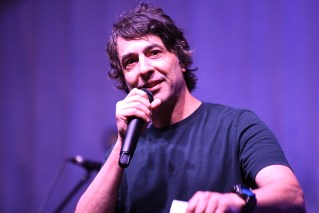Scientists Emmanuelle Charpentier and Jennifer Doudna have won the Nobel prize in chemistry for developing a method of genome editing likened to “molecular scissors” that offer the promise of one day curing genetic diseases.
“There is enormous power in this genetic tool, which affects us all,” the chair of the Nobel Committee for Chemistry, Claes Gustafsson, said of CRISPR/Cas9.
“It has not only revolutionised basic science, but also resulted in innovative crops and will lead to ground-breaking new medical treatments.”
Mr Gustafsson said that as a result, any genome could now be edited “to fix genetic damage”.
BREAKING NEWS:
The 2020 #NobelPrize in Chemistry has been awarded to Emmanuelle Charpentier and Jennifer A. Doudna “for the development of a method for genome editing.” pic.twitter.com/CrsnEuSwGD— The Nobel Prize (@NobelPrize) October 7, 2020
But Mr Gusfafsson cautioned that the “enormous power of this technology means we have to use it with great care” but that it “is equally clear that this is a technology, a method that will provide humankind with great opportunities”.
The recipients were announced on Wednesday in Stockholm by the Royal Swedish Academy of Sciences.
The prestigious award comes with a gold medal and prize money of 10 million krona ($1.5 million).
“I was very emotional, I have to say,” Ms Charpentier said after hearing of the award.
2020 Chemistry Laureates Emmanuelle Charpentier and Jennifer Doudna discovered one of gene technology’s sharpest tools: the CRISPR/Cas9 genetic scissors. Using these, researchers can change the DNA of animals, plants and microorganisms with extremely high precision.#NobelPrize pic.twitter.com/BHwD9ktsRU
— The Nobel Prize (@NobelPrize) October 7, 2020
Professor Charpentier, who is French, and Professor Doudna, an American, become the sixth and seventh women to win a Nobel for chemistry, joining the likes of Marie Curie, who won in 1911, and more recently, Frances Arnold, in 2018.
The Royal Swedish Academy of Sciences said the scientists had discovered one of gene technology’s sharpest tools.
“This technology has had a revolutionary impact on the life sciences, is contributing to new cancer therapies and may make the dream of curing inherited diseases come true,” it said in a statement.
On Monday, the Nobel committee awarded the prize for physiology and medicine to Americans Harvey J Alter and Charles M Rice and British-born scientist Michael Houghton for discovering the liver-ravaging hepatitis C virus.
The other prizes are for outstanding work in the fields of literature, peace and economics.
The amount of money given was increased recently to adjust for inflation.
The prizes for achievements in science, literature and peace were created and funded in the will of Swedish dynamite inventor and businessman Alfred Nobel and have been awarded since 1901, with the economics award a later addition.
Like so much else, the coronavirus pandemic has reshaped the Nobel awards, with many of the traditional events, such as the grand banquet, cancelled or moved online even as research into COVID-19 and the hunt for a vaccine has dominated the scientific spotlight.
–ABC/Wires








